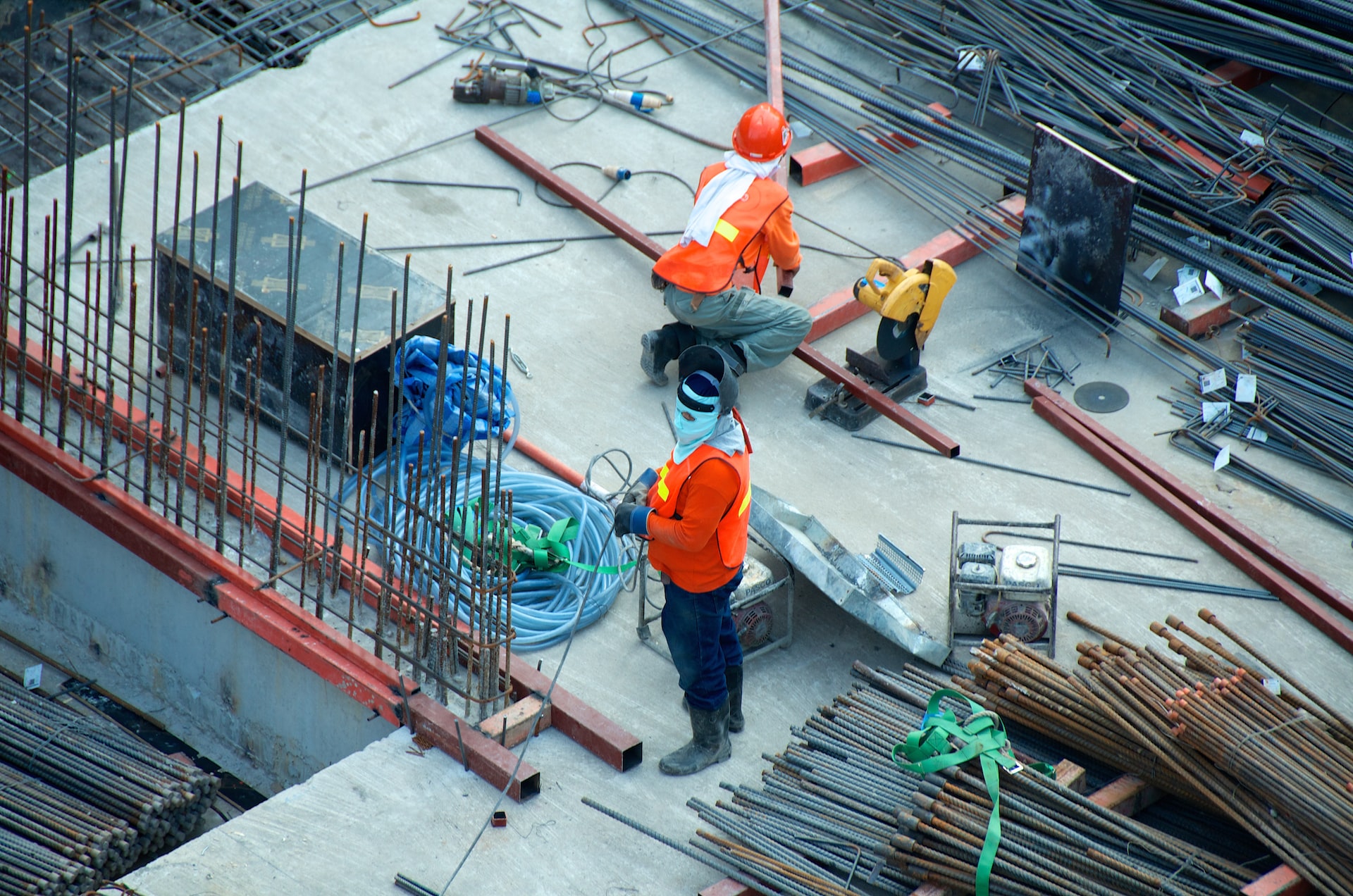Chapters
This engaging GCSE subject may be among the most overlooked and underrated GCSEs. Sure, it's about construction; who would want to labour all day on a construction site? Those places are dirty and dangerous, and the work is demanding. But this course won't teach you how to lay bricks and run a jackhammer. This curriculum includes the following:
- concepts and theories relating to the built environment
- the design, creation and maintenance of buildings
- the tools and processes involved in building
- project planning
- environmental concerns about building and construction
- learning how to use AutoCAD and other construction design methods
Just because this course teaches you about the construction industry, that doesn't mean you are limited to such work when you complete your exam. Many students see GCSE Construction as a stepping stone to a Design course, either Technology or Art and Design.
GCSE Construction covers many important topics. Thus, you'll find great resources online to help you to master all of the concepts this course presents. Let's compare notes, shall we? These are the pages we found that you'll need for your exam. Do you know of any others? Let us know in the comments section below. Thanks!

GCSE Construction: Exam Boards
Admittedly, this GCSE subject is nowhere near as renowned as GCSE Chemistry or Maths. However, it is popular enough that three exam boards support this subject. Edexcel just revamped its curriculum for next year's GCSEs. We'll review that Pearson qualification first and then explore the other two.

Edexcel
Edexcel is continuously improving its Business and Technology Education Council (BTEC) learning programs. Their timing couldn't have been better, considering our current environmental challenges. They've overhauled their GCSE Construction course to reflect today's climate and sustainability concerns.
Students enrolled in this learning program will understand the factors that drive the building industry and the housing market. They'll learn how to develop building plans with an eye toward sustainability and environmental harm reduction. They'll discover how a project developer and a builder work together to complete building projects. Students will complete a craft project as part of their certification.
Welsh Joint Education Committee (WJEC)
WJEC GCSE Construction follows roughly the same pattern as Edexcel. First, students will devote most of their class time to learning about concepts related to the construction industry. Those include the different stages of the built environment's life cycle and understanding how additional trades relate to the built environment.
You'll discover the tools and materials used in construction and how building plans are drawn. The latter part of your course explores various building plans. Finally, you'll have your chance to design a structure. You will also have a non-exam assessment (NEA), a craft project similar to the one mentioned above.
WJEC enforces the Welsh perspective. That entails considering the Welsh environment, landscape and cultural themes when designing structures. To that end, learners will explore the Welsh-built environment throughout the curriculum.
Council for Curriculum Education and Assessment (CCEA)
As the previous exam board addressed concerns about the Welsh-built environment, CCEA concerns itself with the Northern Irish construction trade. Here, you'll also find location-specific information, such as preferred building materials and architectural and design styles. And, just like the Edexcel qualification, the CCEA GCSE Construction award could lead to further studies in Technology and Design. It may also lead to additional Engineering, environmental studies, and even Further Maths courses.
All three exam boards touch on the same topics. Those include health and safety, sustainability and types of building materials. Each exam board's curriculum touches on design principles, the science behind building materials and ecological protections - both during the building process and after the development. Other than being location-specific, there's not much difference between these GCSEs.
Resources for GCSE Construction
BBC Bitesize, our favourite GCSE revision resource, doesn't (yet) have a section for the Construction GCSE. However, some of the Design and Technology Bitesize resources will be helpful. They relate to the design issues you must understand for your course.
There, you can review different types of resistant materials. You'll also pick up on the methods used to manipulate them and the necessary considerations every builder must consider. Those pages also cover the health, safety, social and environmental issues you must consider. Now, let's talk about other revision resources.
Past Papers
Because the curricula are similar across all three exam boards, you could visit the WJEC or CCEA websites to download past exam papers, marking schemes and examiners' reports. The Welsh site lists Sample Assessment Papers (SAMs) rather than past exam papers. The two are synonymous. Each site also offers a specifications page. In short, everything is pretty much like any other GCSE subject you might want past papers for.
WJEC provides you with an examiner's report. It details exam particulars and discusses past students' performances, what they did well and what they could have done better. At the end of this report, you'll find a critique of the exam itself and how it could better serve the students. Neither Edexcel nor CCEA makes examiner's reports available.
Whereas the Welsh exam board makes only one SAM available to you, the Northern Irish board provides four years' worth. You'll not have access to all the latest materials because they're still under copyright. You can find earlier editions by selecting a different year from the 'Select a year' pulldown menu. Then, you will find past papers and marking schemes for both study units.
Keep in mind that those exam boards emphasise location-specific learning. Thus, you'll see many references to Wales and Northern Ireland throughout. You only need to replace those qualifiers with your location to understand how to answer such questions.
Despite that feature, having past papers, marking schemes, and examiners' reports will significantly aid your revision efforts. You'll get an idea of what the exam is like and the type of knowledge you need to master to ace this course. You can compare the papers to see how they differ and learn from both.

HWB Revision
This Wales-based revision site has a section for the GCSE that includes a Building Craft study resource. It contains information on different kinds of materials and building techniques, as well as some practical activities and question sets that you can use as practice. The student handbooks for each topic provide convenient summaries of all the most critical information.
This resource makes a nice tie-in to the WJEC exam board's offerings. It doesn't necessarily complement the Northern Irish past papers. However, the CCEA's Rewarding Learning website has good resources to advance your knowledge of health and safety. You could also learn more about the construction industry in the 21st century. These exam boards' further resources pages give you plenty to explore - construction-related and otherwise.
PGFL
This website has valuable resources covering topics in the Edexcel double award GCSE in Construction and the Built Environment. They include material on community, site, design and economic issues, and guides on carpentry and brickwork. This site will be most helpful if you study the same syllabus, but you can still find some relevant information here if you are looking at a different exam board.
TES Connect
This teacher-oriented site has some good resources; you only need to sign up for an account. Once you do, you'll have access to pages filled with revision tools - not just for GCSE Construction but all of your GCSEs. You'll find presentations and notes covering many topics you must study for your course. Why not check out all of the other activities they make available? You can complete a few to ensure you understand all the information correctly.
Construction Skills Resources
As mentioned in this article's introduction, GCSE Construction is vastly underrated. So much so that formal GCSE revision resources are scant. Even BBC Bitesize overlooks this curriculum! Turning to trade websites is the best way to round out our education. What follows are some of the best-suited to your learning needs.
The Skills Workshop
This Construction, Carpentry and Plumbing resource centre has loads of materials related to the construction industry. You can download worksheets to learn more about health and safety, scale drawings and how to cut shapes out of various materials. You can also find resources to build your numeracy skills. You'll also find some activities designed for construction students that can help you with essential tasks such as converting measurements. In addition to the maths activities, you can also avail yourself of resources covering topics such as tools and design on this website.
Health and Safety Executive
Health and safety are essential issues in the construction industry. They feature prominently throughout your GCSE course. This British government website provides you with many construction-related subjects to explore. You can learn more about the health risks pervasive in the construction industry and know how building and demolition sites must be managed from a safety perspective.
While you're at it, check out the Pollution and Prevention Guidelines. It may be far more information than you need to pass your GCSE, but it contains fascinating information on how government bodies consider industry issues and public health. This plan also considers future developments and sustainability initiatives.
Sustainable Build
This resource is also probably far beyond what you need to pass exams. But it's well worth your while to take a browse through it. If you want to learn more about sustainable or green building, this website gives you a good overview of the issues involved. And, as long as you're there, you can read other articles related to the construction industry and its current problems. Don't just limit yourself to reading about the materials and techniques that can be used in sustainable development!
Construction Knowledge.net
This site offers a series of white papers on anything from general construction knowledge to job site management. You can learn more about the different materials and techniques discussed in your course through their knowledge database. Don't forget to check out their blog for engaging tales from the construction site!
SteelConstruction.info
Unlike what its name hints at, this site isn't all about steel construction. If you direct yourself to their Resources for Students page, you'll find a wealth of information about engineering, architecture and other building principles. On their page's left side, you'll find links to essential resources used throughout the construction industry. Those may be too advanced for your level of learning, but be sure to explore their Hot Topics section!
Other Useful Links
You might be years away from starting your career - in whichever field you choose, even in construction. Still, it doesn't hurt to look around a bit. You might explore Construction Student to find out how the credentials you're earning right now will translate into steady, satisfying work in the future. If you're considering an apprenticeship in construction, you might look up the CITB website to learn about such opportunities in Wales.
You should bookmark the UK government's National Career Service page for construction and trades. It's not primarily a job-finding resource, but there are links to apprenticeship-finding pages. Each job title listed gives you the chance to explore that profession. Each page cites various statistics, such as the skills needed for that work, how much you can expect to earn and the work involved.

Why Choose GCSE Construction?
We listed several reasons why GCSE Construction is an excellent choice. Perhaps your main takeaway was this course's diversity. You'll gain academic knowledge, of course, and practical knowledge that you could put to work immediately. You'll approach topics of vital concern today, like climate change and ecological degradation. And you'll get your hands a little dirty, too, as you build your project.
The civilisation will always need people skilled in the trades, including construction. The skills you'll learn in this course will serve you well - whether you build magnificent towers or another career. That's because, besides learning this craft, you'll also develop problem-solving and critical-thinking skills. You'll also cultivate a keen spatial ability - not just a talent for seeing objects about each other but being able to process such information.
Considering our current climate and environmental emergencies, we need people trained and knowledgeable about the latest technologies. Learning to work with sustainable materials and make our built environment ecologically safer virtually guarantees your future job security. And even if you don't want to work in the building trades, you'll take your awareness of those pressing needs. That's quite a yield from a single GCSE subject.
On the other hand, GCSE ICT (Information and Communication Technology) concentrates on the practical use of technology, computer systems, and digital skills. Students studying GCSE ICT learn about hardware and software, computer networks, data management, programming, and the impact of technology on society. The aim is to develop their understanding and competence in using technology effectively in various contexts.
A fascinating connection between GCSE ICT and GCSE Construction lies in the growing integration of digital technologies within the construction industry. With the rapid advancement of technology, the construction sector is embracing innovative tools and techniques to streamline processes and enhance efficiency. Students with a solid GCSE ICT foundation can leverage their digital skills to contribute to this transformation.















100 quid an hour what a joke
hi